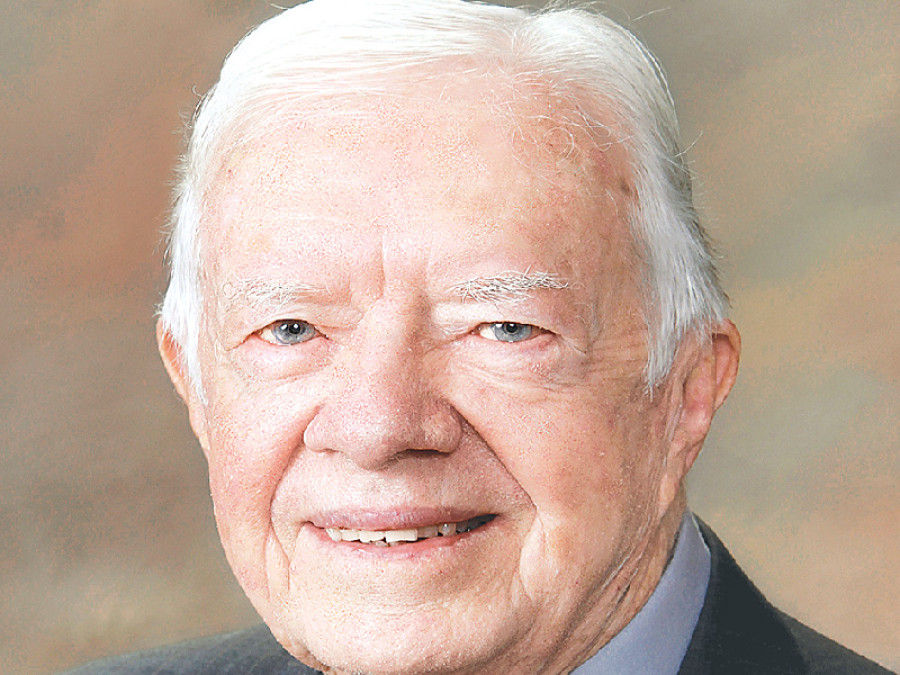Miscellaneous
‘I still wish to visit Nepal’
Former United States president and Nobel peace laureate Jimmy Carter, who has been diagnosed with cancer in his brain, said that he still hopes to make a scheduled trip to Nepal.
Former United States president and Nobel peace laureate Jimmy Carter, who has been diagnosed with cancer in his brain, said that he still hopes to make a scheduled trip to Nepal.
Speaking to reporters in the States last week, 90-year-old Carter said he wished to come to Chitwan and complete his project for Habitat for Humanity, a charity in which he has been deeply involved. “I really wanted to go to Nepal to build houses,” he told reporters at a press conference in Atlanta.
According to Habit for Humanity’s website, they will be carrying out the project in Chitwan’s Ratnagar municipality, which is near Bharatpur. The project will work with 100 dalit families who are currently living in grass and thatch huts and will be replacing these simple huts with permanent housing.
“I would still hope to go (to Nepal). It would require an airplane flight from Kathmandu to the Chitwan area... And if I do that, I understand from my schedule that it would require a five-week postponement of my last treatment. So that’s what I’m going to have to consider,” said Carter, “But if I don’t go, the rest of my family will probably go to take my place.”
Carter’s melanoma, a form of skin cancer, has been discovered in four places on his brain and is likely to “show up other places in my body”, the former US president said.
The 39th president of The United States, Carter went on to establish the Carter Center and has travelled the world as a peace broker and human rights advocate. Working in Nepal since 2003, Carter Center observed the first Constituent Assembly elections in 2008 and then conducted long-tem political and constitutional monitoring until June 2013.
Carter had arrived here in Kathmandu in November 2013, for a week-long visit to observe the second Constituent Assembly elections. The Center’s mission was led by Carter and former Deputy Prime Minister of Thailand Surakiart Sathirathai. On election day, 66 Carter Center observers from 31 countries visited 336 polling centres in 31 districts to observe voting and 31 counting centres.
After the election, the centre closed its office in Nepal, stating that its direct presence in Nepal is not necessary. Carter was awarded a Nobel Peace Prize in 2002.




 9.51°C Kathmandu
9.51°C Kathmandu









